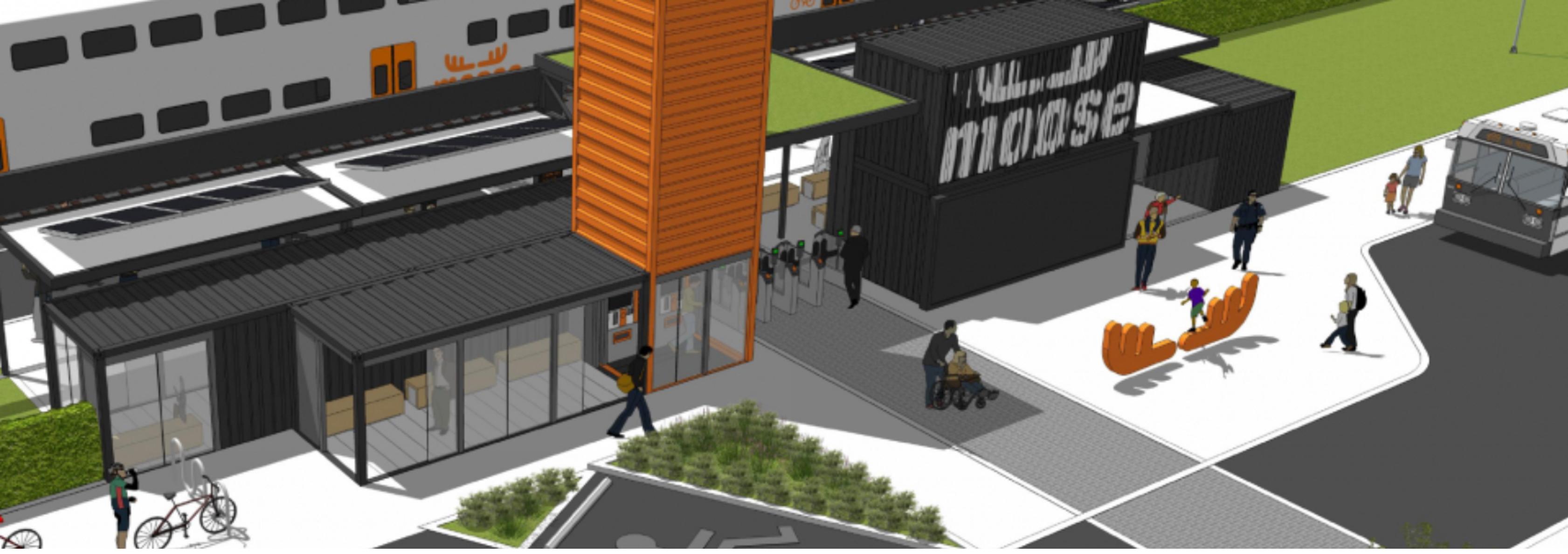

Between 31 May 2018 and 31 July 2018, the Department for Transport held a 'Call for ideas' in respect of rail market-led proposals (MLPs); essentially a call for proposals that were 'financially credible without government support'.
There was a strong response to this call for ideas, with the department receiving 30 submissions, although DfT has not yet commented on the relative merits of these. An MLP is defined as 'a project promoted by the private sector which addresses an opportunity not necessarily identified or prioritised in a department programme or through the Network Rail-led long term planning process'.
In Canada's National Capital Region (over a dozen municipalities including Ottawa Ontario and Outaouais Quebec), a consortium of companies is taking a market-led design from a business design innovator to its logical conclusion. The ‘Rail-Powered Property – Property-Powered Rail’ (RPP - PPR) Open Market Development Model is designed to optimise return on investment in property by delivering metropolitan-scale passenger railway systems and services on a commercial open market basis, without dependence upon government subsidies, public debt or taxes.
The RPP - PPR model is currently being put forward by Canada's MOOSE Consortium (Mobility Ottawa-Outaouais: Systems & Enterprises), led by director general Joseph Potvin. The plan is backed by some local politicians and opposed by others (of course!), and aims to deliver an inter-provincial metropolitan rail system in Eastern Ontario and Western Quebec.
Whilst many issues remain, MOOSE wants to run metropolitan passenger trains over existing rail corridors owned by multiple local rail companies. In this business model, independent stations pay license fees for train service based on apportioning the actual increased income and asset value of property within 0.8 km of the station. The augmented financial value of property near train stations is common knowledge. But RPP-PPR is the first to suggest that a major railway system can be financed entirely upon this uplift.
Joseph Potvin will be speaking and running a Q+A session at the Rail Stations and Property Summit on February 27 in London. He will also be contributing a more detailed article to the next issue of this Bulletin.
A key enabler of the process is the sharing of value-added in transactions through a 'smart-contracts' component co-designed by Potvin in his capacity as Executive Director of the Xalgorithms Foundation, a Canadian high-tech not-for-profit that is dedicated to 'the development and evolution of a free/libre/open, standard way to publish and to fetch computational algorithms over the Internet, with particular attention to advancing the fairness and efficiency of markets through algorithmic commerce’.
Essentially, a passenger railway project management company plans a high quality train service, then in an open market it sells licenses to independent station enterprises. Under a framework agreement, trains service each participating locality in exchange for a monthly fee based upon a formula that makes use of independent empirical data on the property market effects of that railway access.
The increment attributed to the railway service by a mutually agreed property valuation company sets the price, but each station enterprise remains free to assemble funds by their preferred method (for example, affirmative covenants; common elements freehold condominium; municipal tax instruments).
This RPP-PPR model can bootstrap all start-up funds for the railway and generate sustained income, at a scale enabling straightforward capital financing of infrastructure. This eliminates dependence on government subsidies, public debt or taxes, and it directs investors towards diverse property development opportunities around stations.
This model is designed to respect each municipality’s prerogatives over zoning, approvals, taxation, bylaws and municipal transportation planning in accordance with normal application review and approval processes, whilst providing for rail systems that would normally involve massive public sector spending, and tricky co-operation among several municipalities.
TransportXtra is part of Landor LINKS
© 2025 TransportXtra | Landor LINKS Ltd | All Rights Reserved
Subscriptions, Magazines & Online Access Enquires
[Frequently Asked Questions]
Email: subs.ltt@landor.co.uk | Tel: +44 (0) 20 7091 7959
Shop & Accounts Enquires
Email: accounts@landor.co.uk | Tel: +44 (0) 20 7091 7855
Advertising Sales & Recruitment Enquires
Email: daniel@landor.co.uk | Tel: +44 (0) 20 7091 7861
Events & Conference Enquires
Email: conferences@landor.co.uk | Tel: +44 (0) 20 7091 7865
Press Releases & Editorial Enquires
Email: info@transportxtra.com | Tel: +44 (0) 20 7091 7875
Privacy Policy | Terms and Conditions | Advertise
Web design london by Brainiac Media 2020